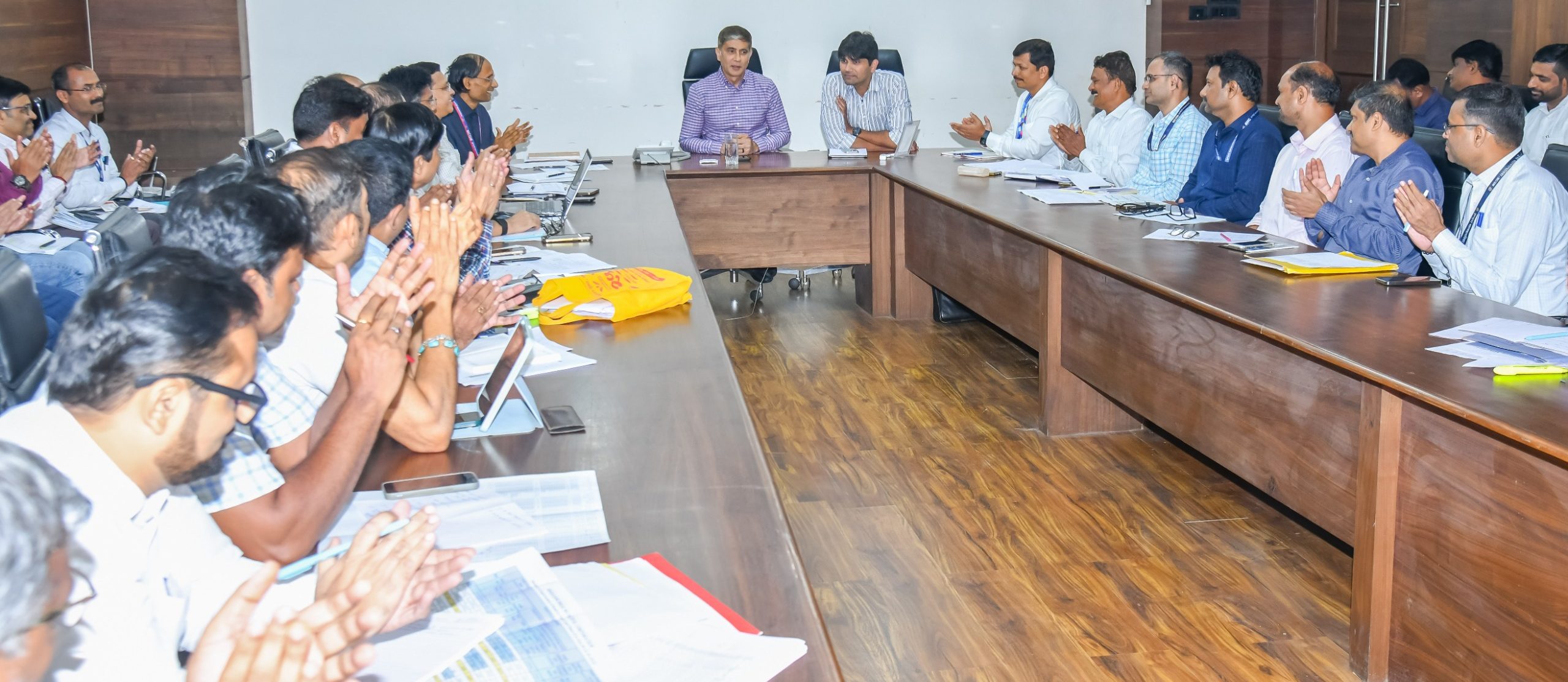
All 227 Ward Engineers Directed to Proactively Identify and Repair Potholes
Municipal Commissioner Bhushan Gagrani Issues Strict Instructions
Mumbai – The Brihanmumbai Municipal Corporation (BMC) has initiated pothole repair works across all 227 electoral wards through zone-wise tenders and the appointment of contractors. Municipal Commissioner and Administrator Shri Bhushan Gagrani has directed all designated Sub-Engineers to conduct daily field inspections in their assigned areas and to proactively identify and repair potholes—before they grow in size.
“Potholes must be filled while they are still small in dimension,” said Commissioner Gagrani, stressing that Mumbai’s roads must be made pothole-free to ensure citizens face no inconvenience during commutes. He also issued a stern warning that any sign of road surface erosion or neglect will lead to strict action.
In view of the monsoon season, Commissioner Gagrani chaired a high-level meeting of engineers from the Roads and Traffic Department on June 9, 2025 at the BMC Headquarters. Present at the meeting were Additional Municipal Commissioner (Projects) Shri Abhijit Bangar, Deputy Commissioner (Infrastructure) Shri Shashank Bhore, Chief Engineer (Roads & Traffic) Shri Girish Nikam, along with Deputy Chief Engineers, Executive Engineers, and Assistant Engineers.
Contractors Appointed, Field Vigilance Emphasized
Gagrani noted that the appointment of contractors for road repair works has been completed, and urgent filling of potholes is expected to begin immediately. Sub-Engineers must remain alert and responsive, he stressed, and keep a close watch to ensure timely repairs.
To address the recurring pothole problem in Mumbai, the BMC has been undertaking extensive cement concretization of roads. As a result, the number and severity of potholes have steadily decreased over the years. The corporation has observed a significant reduction in the annual expenditure on pothole repairs for the years 2023, 2024, and 2025.
All Engineers Must Be On-Field, Not in Offices
Additional Municipal Commissioner (Projects) Shri Abhijit Bangar emphasized that each Sub-Engineer is responsible for 10 to 15 kilometers of roadway. “No one should assess fieldwork from behind a desk. Repeated site visits are essential to monitor conditions firsthand,” he said.
He instructed Sub-Engineers to conduct motorcycle inspections every alternate day to ensure a comprehensive overview of road conditions. Waiting for citizen complaints to initiate repairs is unacceptable, he said. Instead, engineers must act proactively and repair potholes as soon as they appear.
Weekend Repairs to Be Accelerated
Although pothole filling will continue throughout the week, Bangar instructed that repairs be accelerated on weekends (Saturday and Sunday) due to lighter traffic. “This will ensure that commuters heading to work on Monday will experience smoother travel,” he said.
Potholes should be addressed while still 6 to 12 inches in size, as no pothole becomes massive overnight. He added that road surfaces found riddled with potholes or showing signs of severe wear and tear will not be tolerated, and strict disciplinary action will follow.
Best Practices for Pothole Filling Mandated
Potholes must be rectangular in shape, not irregular. Cold mix should not be used on roads wider than six meters. Only mastic asphalt must be used for such repairs. Additionally, geo-polymer concrete should be utilized on selected stretches.
Bangar instructed that all mastic cookers be maintained in proper working condition and made available for use. Contractors must ensure uninterrupted production and supply of mastic asphalt. Each contractor should have a dedicated mastic unit, so that alternate supply remains available if one fails.
Route Plans, GPS Tracking to Enhance Accountability
Assistant Engineers must collect field data from Sub-Engineers and finalize daily route plans accordingly. The availability of mastic cookers should be ensured in line with these plans. Repair work should be executed nightly or as needed.
All mastic cooker vehicles must be fitted with Global Positioning System (GPS) devices, enabling tracking via the Vehicle Tracking System (VTS). Bangar emphasized that payment will not be released for work done by any mastic cooker vehicle lacking GPS equipment.
